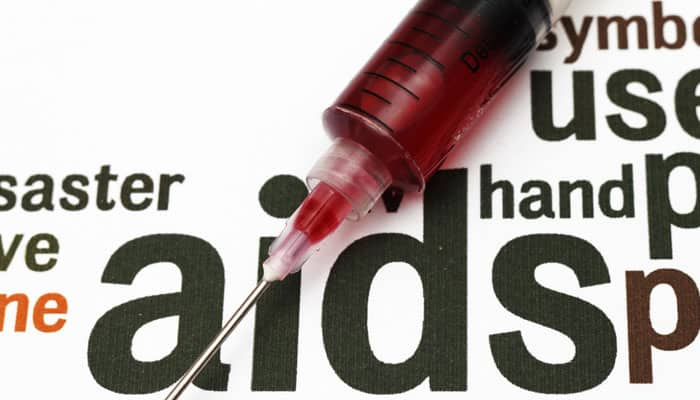Washington: In a major step against HIV (human immunodeficiency virus), the virus that causes AIDS, scientists have announced the creation of a novel drug candidate that is so potent and universally effective it might work as part of an unconventional vaccine.
"Unlike antibodies, which fail to neutralise a large fraction of HIV-1 strains, our protein has been effective against all strains tested, raising the possibility it could offer an effective HIV vaccine alternative," said lead researcher Michael Farzan, professor at The Scripps Research Institute (TSRI), Florida.
Tested in monkeys, the new drug candidate blocks every strain of HIV-1, HIV-2 and SIV (simian immunodeficiency virus) that has been isolated from humans or rhesus macaques, including the hardest-to-stop variants, the findings showed.
It also protects against much-higher doses of virus than occur in most human transmission and does so for at least eight months after injection, the researchers noted.
"Our compound is the broadest and most potent entry inhibitor described so far," Farzan added.
When HIV infects a cell, it targets the CD4 lymphocyte, an integral part of the body's immune system.
The new study builds on previous discoveries by the Farzan laboratory, which show that a co-receptor called CCR5 contains unusual modifications in its critical HIV-binding region, and that proteins based on this region can be used to prevent infection.
With this knowledge, Farzan and his team developed the new drug candidate so that it binds to two sites on the surface of the virus simultaneously, preventing entry of HIV into the host cell.
The team also designing a delivery vehicle -- an engineered adeno-associated virus, a small, relatively innocuous virus that causes no disease.
Once injected into muscle tissue, like HIV itself, the vehicle turns those cells into "factories" that could produce enough of the new protective protein to last for years, perhaps decades, Farzan said.
The study was published online in the journal Nature.
















